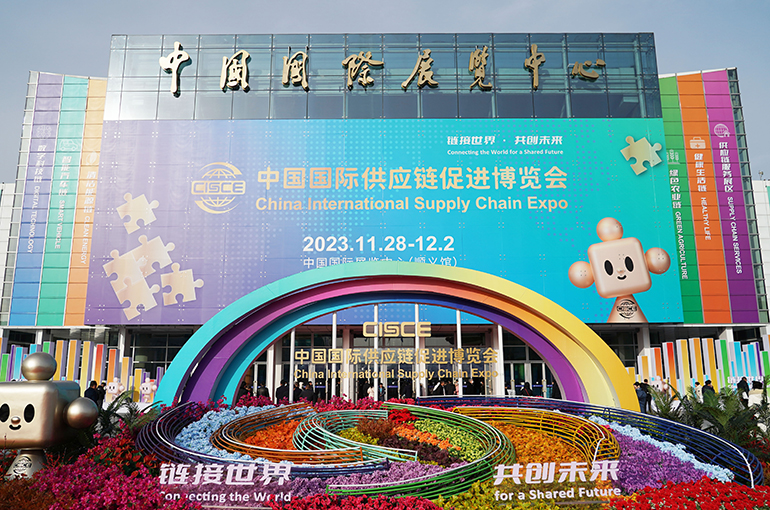 515 Chinese, Foreign Exhibitors Attend First China International Supply Chain Expo in Beijing
515 Chinese, Foreign Exhibitors Attend First China International Supply Chain Expo in Beijing(Yicai) Nov. 29 -- Some 515 Chinese and foreign exhibitors are attending the first China International Supply Chain Expo that kicked off yesterday in Beijing.
The CISCE is the world's first national exhibition themed on supply chain, showing China's determination and confidence in maintaining a stable and smooth supply chain flow. Li Qiang, premier of China's State Council, attended the CISCE opening ceremony.
The CISCE covers an exhibition area of 100,000 square meters, with one supply chain service exhibition area and five supply chain exhibition areas for smart cars, green agriculture, clean energy, digital technology, and healthy life.
"Robert Bosch decided to attend the exhibition long ago," Jiang Jian, vice president of the Chinese arm of the German auto parts giant, told Yicai. "We are so excited because the CISCE offers us not only a platform to fully display our products, but also an opportunity to strengthen cooperation and understanding with global supply chain partners."
Bosch's sales in China exceeded CNY130 billion (USD18.3 billion) last year, with the figure expected to reach CNY140 billion this year. China was Bosch's largest sales market in the world for the sixth consecutive year last year, accounting for 21 percent of its global sales.
"It is very important to have a stable and flexible supply chain during post-pandemic operations and global economic recovery," Ken Stacherski, chief global supply chain and service officer at General Electric's healthcare arm GE Healthcare, said at a forum yesterday.
GE has seven plants in operation and two under construction in China. Its Shanghai plant is one of China's largest medical equipment exporters.
Multinationals, the core companies of supply chains, are often called chain leaders for their strong shaping and controlling power over supply chains, said Zhao Ping, dean of the academy of the China Council for the Promotion of International Trade. China has become an essential market for multinationals, she added.
Around 70 percent of foreign companies in China did not have any plans to make any changes to their industrial layout in the country in the third quarter, up 4.6 percentage points from the second quarter, according to a report released by the CCPIT earlier this month.
Editor: Futura Costaglione